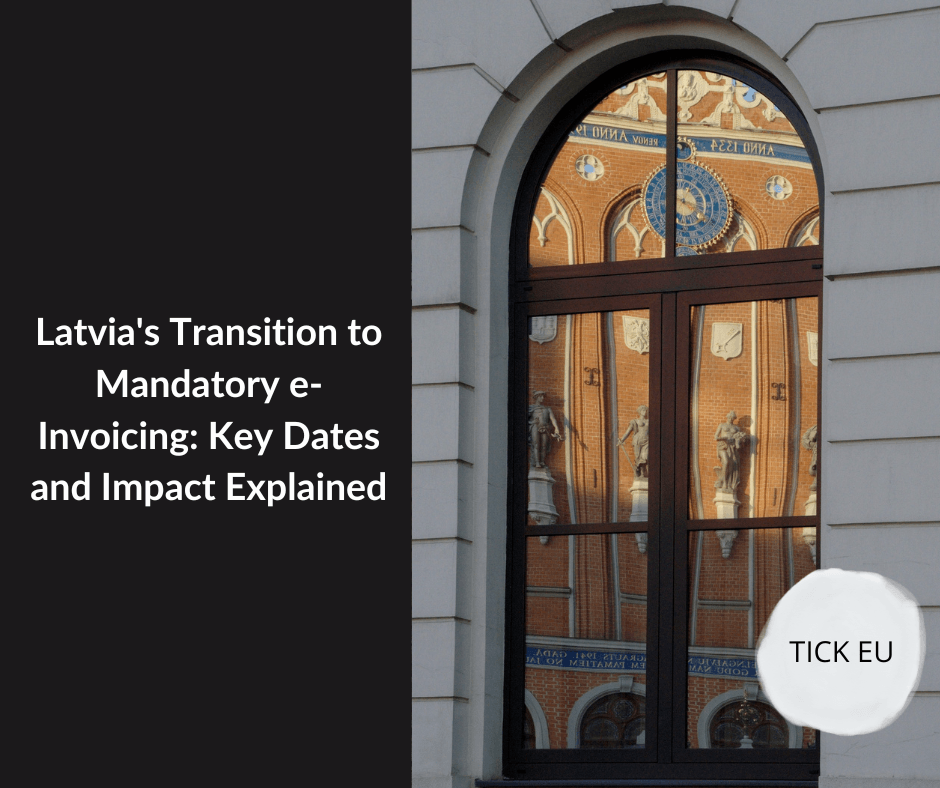Compliance with Peppol Standards and Transition to e-Invoicing
e-Invoices must adhere to the Peppol BIS Billing 3.0 standard, a comprehensive European framework that promotes interoperability and standardization across borders. These invoices should be submitted in XML format, which enables automated processing and seamless integration with tax authorities’ systems.
At this juncture, businesses should begin modifying their invoicing systems to support e-Invoicing for transactions involving public entities. This transition will necessitate the implementation of compatible software that can generate and send invoices in the required format. Additionally, businesses need to consider potential workflow adjustments to ensure compliance by the 2025 deadline.
Advantages for the Public Sector
The Latvian government’s initiative to mandate e-Invoicing in the public sector presents multiple benefits:
- Enhanced Transparency and Accountability: e-Invoicing guarantees that all financial transactions are digitally recorded, minimizing the risks of fraud and human error.
- Accelerated Invoice Processing: Automated systems can handle invoices more swiftly than manual processes, leading to faster payments and improved cash flow for businesses engaged with the government.
- Alignment with EU Regulations: By adopting the Peppol standard, Latvia ensures its e-Invoicing practices meet broader European Union requirements, thus facilitating smoother cross-border transactions.
Phase Two: Expanding the Mandate to B2B Transactions (Effective January 1, 2026)
The second phase, effective January 1, 2026, will extend the e-Invoicing mandate to business-to-business (B2B) transactions. Starting on this date, all companies operating in Latvia must issue e-Invoices for their B2B transactions. This phase significantly broadens the regulatory scope, impacting nearly all businesses engaged in commerce within Latvia.
Additionally, with this phase’s implementation, businesses will be required to submit electronic invoice data directly to the State Revenue Service (SRS). The SRS will serve as a centralized hub for collecting and processing invoice data, ensuring accurate tax reporting and real-time oversight of economic activities.
This mandatory data submission aligns with Latvia’s broader Continuous Transaction Controls (CTC) framework, aimed at enhancing government visibility into business transactions and improving the accuracy and timeliness of tax payments. Real-time reporting under the CTC model reduces the risks of income underreporting and various forms of tax evasion.
Challenges for Businesses
While the transition to e-Invoicing presents long-term advantages, businesses will encounter several challenges during the adaptation process:
- Software Integration: Companies must invest in systems that can generate e-Invoices in accordance with the Peppol BIS Billing 3.0 standard and communicate effectively with the SRS portal.
- Compliance and Training: Businesses must ensure that their teams are well-informed about the new requirements and proficient in e-Invoicing procedures, which may necessitate staff training and workflow reengineering.
- Cost Considerations: Although e-Invoicing may lead to reduced operational costs in the long run, the initial transition may require significant investments in technology, training, and system upgrades.
Latvia’s Technical Infrastructure for e-Invoicing
Although the transition to e-Invoicing is imminent, Latvia’s technical infrastructure to support this change is still being developed. The Latvian Ministry of Finance is finalizing details for the e-Invoice exchange channel, enabling secure transmission of invoices between businesses and tax authorities.
To ensure full interoperability, the Latvian government has opted to implement the Peppol e-delivery network, a widely accepted standard in Europe that facilitates seamless electronic document exchanges between businesses and government entities. Peppol’s infrastructure guarantees compatibility across various countries and sectors, streamlining cross-border transactions within the European Union.
Currently, there is no single mandatory platform for issuing e-Invoices in Latvia, but businesses engaging with public entities have several options available:
- E-address: A secure tool for digital communication with Latvian public administration.
- ePakalpojumi Platform: A government service platform for submitting invoices to central authorities.
- Riga Municipality’s E-Services: A dedicated platform for e-Invoicing for businesses working with Riga’s municipal authorities.
Timeline and Key Dates
- June 7, 2024: Deadline for public consultation on the draft law. Stakeholders have until this date to provide feedback on proposed e-Invoicing regulations.
- January 1, 2025: Mandatory e-Invoicing begins for all transactions involving public entities (G2G, B2G, G2B).
- January 1, 2026: e-Invoicing becomes mandatory for all B2B transactions, and businesses must submit invoice data to the SRS.
Conclusion: Preparing for the Future of e-Invoicing in Latvia
Latvia’s shift to mandatory e-Invoicing is a crucial advancement in the digitization of its financial and taxation systems. By early 2026, e-Invoicing will be a legal requirement for almost all businesses operating in the country, fostering a more transparent, efficient, and compliant financial ecosystem.
For businesses, immediate action is essential. Early preparation is vital to ensure a smooth transition, from updating invoicing systems to training staff and achieving compliance with new standards. Failure to adapt could lead to penalties or operational disruptions, while those who embrace these changes are likely to benefit from streamlined processes and enhanced financial oversight.


